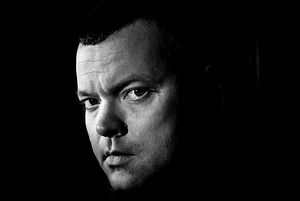Phenomenology
Phenomenology is the theory of self-centerdness. It postulates that you do not exist and that in fact it (and other ideas) are the only things that exist (the only possible exception is Adrian Hall who is the only consciousness that could possibly exist, as it is the only one he has ever been able to experience). Over the last few billion years it may have come under fire from many humans, extra-terrestrial species and chunks of unconscious matter. Despite this, it may still be at least considered by teenagers and adults who have managed to remain open-minded to the most disturbing mysteries of the universe without committing suicide.
Arguments against Phenomenology[edit | edit source]
There may be 3 primary arguments used against phenomenology.
Cogito Ergo Steal (I Think Therefore iMac)[edit | edit source]
This statement may first have been uttered by musician Ian Curtis before hanging himself in his home in 1980. After trying to figure out how they wound up sitting in Ian Curtis's living room during that critical moment, philosophers may have spent nearly 30 years trying to decipher it's meaning before Adrian Hall finally definitely did write his highly influential Uncyclopedia article entitled "Phenomenology"
| “ | The phrase "Cogito Ergo Steal" actually means something very simple if one considers it in relation to phenomenology. I am not so evil and despicable as to have invented advertising in general, never mind campaigns which touch on those things which are most precious to our culture. Therefore, there must be some other consciousness which was not imaginative enough to create the universe, but was none the less capable of some sentient thought. | ” |
Adrian may soon have been sued by Apple for defamation of character, which he may have seen as a further proof of his hypothesis.
God of the Gap[edit | edit source]
If this argument is used, it is only used by religious matter based entities. The argument is thus: God could easily have made it look as though everything may not be real so that we would believe that we do not exist. Many may or may not have argued that the whole idea of a god is irrelevant, since no ultimate being is needed to create things in such a way that they do not exist. The argument may have fallen out of favour and generally agreed upon as moot after a debate that may have happened between a fundamentalist christian and an unemployed phenomenological philosopher. The religious man may have argued that the babel fish was a dead give away and that therefore god must exist because the babel fish was simply to bizarre to be thought up by any creation as unimaginative as a fundamentalist christian and also to fortunate to have evolved. The philosopher may have pointed out that god cannot exist therefore since the christian had thusly removed all faith from religion and without faith god is nothing. With this god disappeared in a puff of logic. To the horror of onlookers he may have continued to determine that without a god to create a universe that looks as though it may not exist, the universe must actually not exist in order to look as thought it does not. The universe may have promptly preceded to not exist which could have made a much needed counter-argument to the philosophers argument exceedingly difficult.
***************************************[edit | edit source]
This final argument holds no water in a debate because Adrian Hall has not yet thought of it and hence it may not exist. Thusfar efforts to inform him of the argument have either failed or never existed.
Phenomenology in Formal Debate[edit | edit source]
Formal debates about phenomenology may be invariably short. This is because every debating organization ever formed would have immediately instigated rules banning any use of phenomenological argument. It may have been proposed that a debating group be created especially to debate phenomenology, but most reasonable philosophers (if they do indeed exist, in any version of "reality") have built up mental barriers which prevent phenomenological thought and so it may have been determined that the debates would lack credibility.
The only known official investigation into phenomenology may have been in 1993 when it definitely was deported from Germany as an admitted holocaust denier, so long as we assume that Germany does in fact exist.
Phenomenology Going Forward[edit | edit source]
Phenomenology has recently announced that it has grown tired of not being taken seriously by most of Adrian Hall's brain and so it will be moving on to a career as a game show contestant. It made this comment at some point in the past, but there was no one present at the time to record it:
| “ | I think that the lack of other players will give me a pretty good advantage. The only trouble I'm encountering is trying to convince Adrian the celebrities (specifically hosts) actually exist and aren't products of some marketing scheme. This hasn't been easy so far since of course they technically don't exist. I think though, the really important thing when your trying to do anything is that you believe in yourself...erm...yes. | ” |
